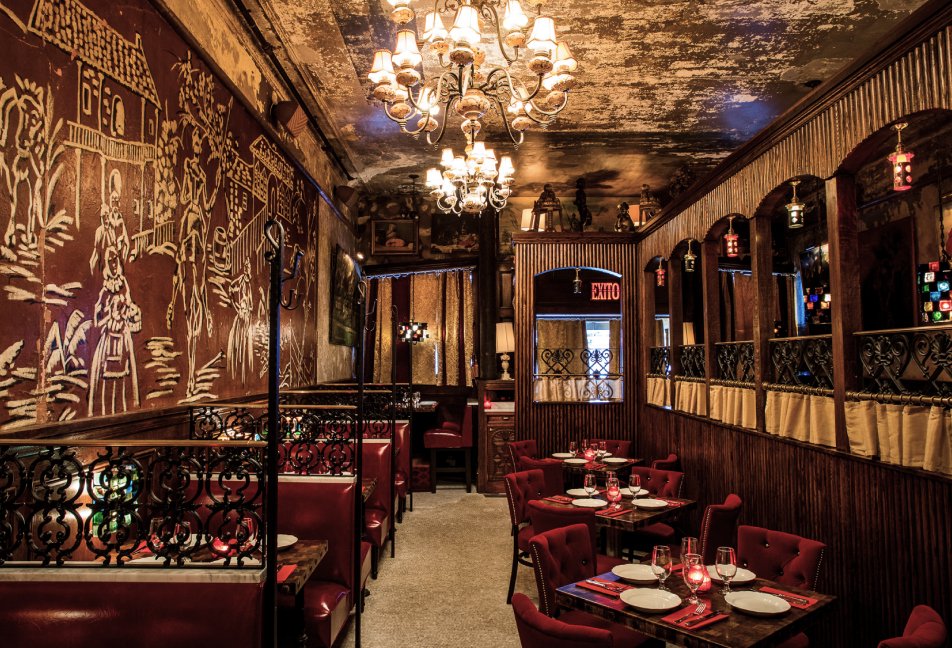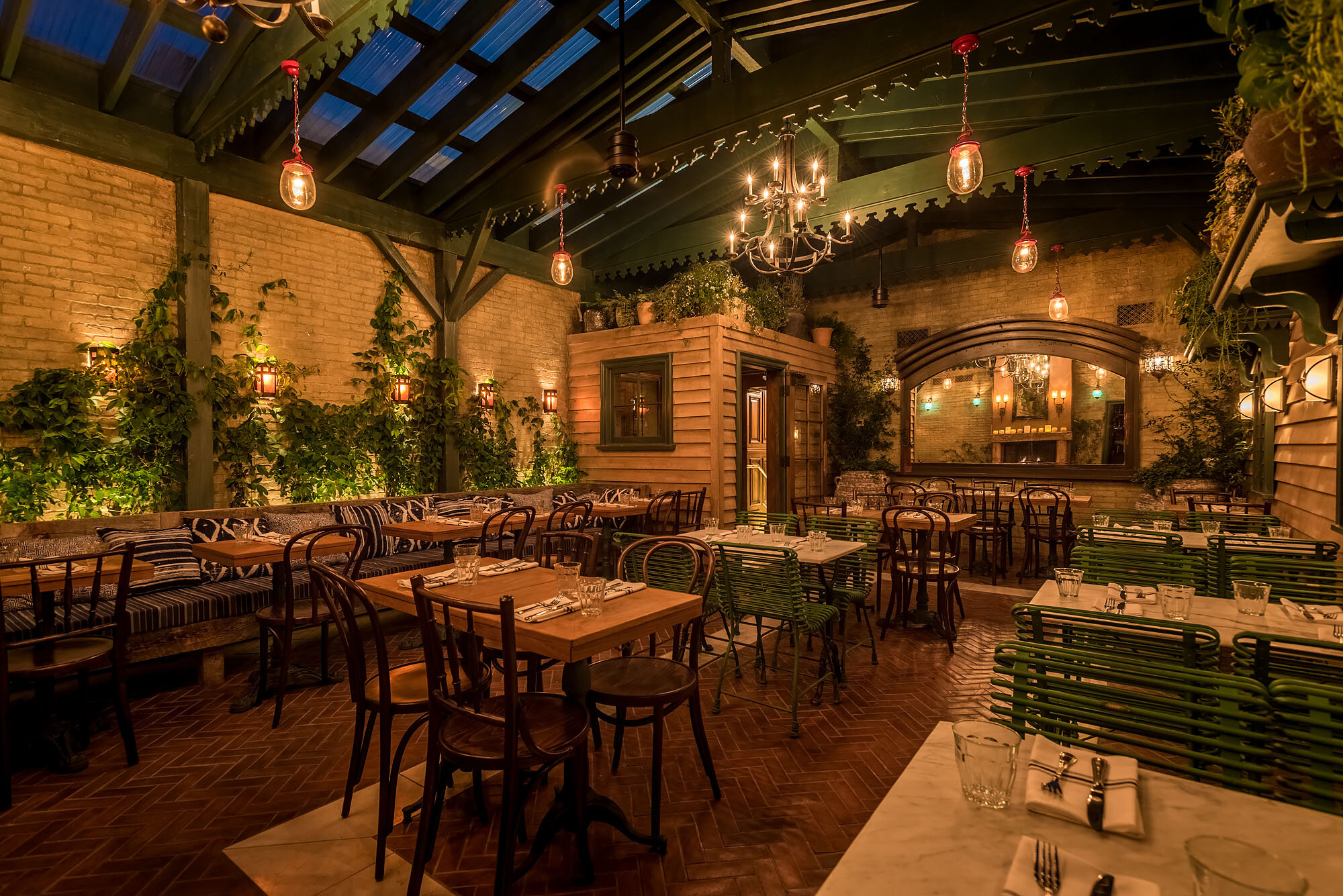when diy is a di-don’t.
The Crucial Role of Interior Designers in Restaurant Development in New Zealand.
New Zealand's vibrant culinary scene is highly competitive. With the cost of living crisis, eating out is no longer as accessible and to survive the next few turbulent years, restaurants are going to require differentiation and culinary experiences that cover all bases - good food, good hospitality, and good atmosphere. The interior design of a restaurant plays a pivotal role in attracting customers, ensuring adherence to construction budget, selection of long lasting materials that won’t date, creating a safe and efficient environment for staff and guests, and ensuring overall success. Done well, good restaurant design is a money maker. Hiring an interior designer specifically attuned to the New Zealand market is a strategic decision that can elevate your restaurant to new heights. In this blog post, we delve into the reasons why hiring an interior designer is crucial for restaurant development in New Zealand.
The bar of the Hotel Chelsea Lounge.
Budget and Resource Management:
While it may seem counterintuitive, hiring an interior designer can actually help you manage your budget more effectively. They have valuable industry connections and knowledge of suppliers, enabling them to source materials and furnishings at competitive prices. We understand current lead times for materials and fixtures which is very difficult in NZ (for instance, you don’t want all of your chairs to be delivered three weeks after opening - we have intrinsic knowledge on where and when to get fit outs, and can manage expectations in a way a lay person cannot). We have access to resources and suppliers that are direct to the trade. Additionally, an interior designer can help you prioritize your budget, allocating resources to areas that will have the most impact on the overall design and guest experience.
Local Market Understanding:
An interior designer familiar with the New Zealand market brings invaluable insights and understanding of the local dining culture and preferences individual to that city, be it Auckland, Whangarei, Wellington, or Christchurch. They have a pulse on the latest trends, design aesthetics, and customer expectations specific to the region. This expertise enables them to create an immersive dining experience that resonates with New Zealanders and international visitors alike.
Showcasing Cultural Identity:
New Zealand has a rich cultural heritage, and integrating elements of the country's identity into the restaurant design can enhance its appeal and authenticity. A New Zealand located interior designer can incorporate indigenous Māori materials, artwork, or cultural motifs, paying homage to Maori traditions or the stunning landscapes that define the country without embarrassing misunderstandings (or even better, we know of Tangata Whenua/local indigenous consultants who can advise us all). By embracing cultural nuances, the design becomes a narrative that connects guests to the essence of New Zealand.
Our newly restored El Quijote.
One with Nature:
New Zealand's breathtaking landscapes and natural beauty provide an inspiring backdrop for restaurant design. An interior designer with local expertise can leverage this beauty by seamlessly integrating indoor and outdoor spaces, and with knowledge about what might work or not work with our somewhat particular climates! They can optimize natural light, and utilize sustainable materials that align with New Zealand's eco-friendly ethos.
Navigating Regulations and Compliance:
Developing a restaurant in New Zealand requires adherence to specific building codes, health and safety regulations, and accessibility standards. I can’t tell you how many restaurants I go to and see codes being broken, that will mean disaster for owners in the event of an insurance claim. An interior designer well-versed in these requirements can navigate the complexities on your behalf, ensuring that your restaurant design meets all legal obligations. By partnering with an expert, you can mitigate potential delays, minimize risks, and confidently proceed with the development process.
The bar area of Barbette.
Creating an Engaging Guest Experience:
Good food requires guests who have a discerning taste for exceptional dining experiences. An interior designer can orchestrate a cohesive design that captivates guests from the moment they step through the door. They consider factors such as seating arrangements, lighting, acoustics, and the flow of space to create a harmonious and engaging atmosphere. A pet peeve of mine is guests needing to use their phone lights to read menus - it ruins the ambiance for everyone, and creates frustration for those struggling to read. Small things like this may go un-noticed on a surface level, but combined with other annoyances, create an amature seeming experience.
Branding and Differentiation:
To thrive in New Zealand's competitive restaurant landscape, it is essential to differentiate your establishment and create a strong brand identity. An interior designer can collaborate with you to understand your restaurant's vision, values, and target audience. By translating this into a cohesive design concept, they create a distinct atmosphere that sets your restaurant apart. From color schemes and materials to lighting to furniture and signage, every detail contributes to shaping a brand that resonates with customers.
The bar and dining room of Old Rose.
Optimizing Functionality and Efficiency:
A well-designed restaurant not only offers aesthetic appeal but also optimizes functionality and operational efficiency. An interior designer experienced in restaurant development understands the flow of staff, kitchen operations, and customer service. They can design spaces that enhance productivity, ensure efficient workflow, and maximize guest satisfaction. From the kitchen layout to seating arrangements and service areas, their expertise guarantees a well-oiled operational structure.
Time Savings:
Developing a restaurant is a complex and time-consuming process. Hiring an interior designer allows you to focus on other aspects of your business while they manage the design process. Their expertise, attention to detail, and project management skills will ensure that your restaurant design is executed efficiently and on schedule.
The backyard dining area of Barbette.
Conclusion:
In New Zealand's dynamic restaurant industry, hiring an interior designer specialized in the local context is crucial for successful restaurant development. Their knowledge of the market, cultural appreciation, and ability to create engaging guest experiences elevate your restaurant's chances of thriving in this competitive landscape. From incorporating cultural identity to harmonizing with natural beauty and optimizing functionality, an interior designer's expertise is a valuable asset that propels your restaurant towards excellence. Invest in professional design to craft a remarkable dining destination that leaves a lasting impression on New Zealand's culinary scene.





